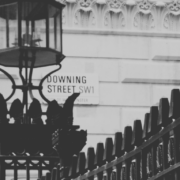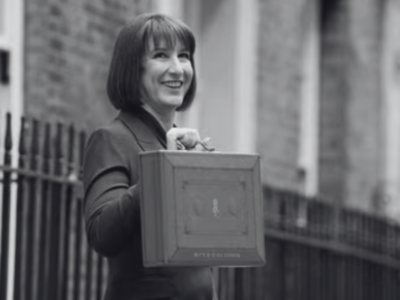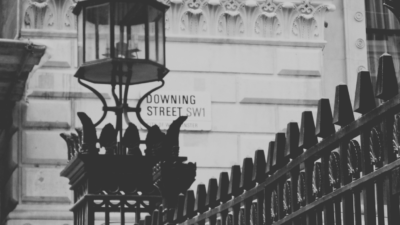The average house price in February was £285,476, 2.1% up on this time last year, and has been stable over the last three months.
When comparing to January, there was a 1.1% increase in house prices through the month of February, although overall prices are flat compared to three months ago.
Recent reductions in mortgage rates, improving consumer confidence, and a continuing resilience in the labour market are arguably helping to stabilise prices following the falls seen in November and December.
Still, with the cost of a home down on a quarterly basis, the underlying activity continues to indicate a general downward trend.
In cash terms, house prices are down around £8,500 (-2.9%) on the August 2022 peak but remain almost £9,000 above the average prices seen at the start of 2022 and are still above pre-pandemic levels, meaning most sellers will retain price gains made during the pandemic.
With average house prices remaining high housing affordability will continue to feel challenging for many buyers, said Kim Kinnaird, Director, Halifax Mortgages.
Nations and regions house prices
Kinnaird continues, the rate of annual growth slowed in all nations and regions in February.
Annual growth reduced most significantly in the North East, at 1.1% in February vs a rise of 3.6% in January, with homes now costing an average £163,953.
Average house prices in London are now £526,842, a 0.9% fall from January’s £530,416.
London may be affected by its large proportion of flats – prices for which have broadly stagnated.
Despite this slowdown, homes in London still cost over £240,000 more than the UK national average.
Annual growth fell the least in Scotland.
House prices in the nation are now an average £198,779 (a growth rate of 2.2%, vs 2.3% in January.)
Similarly in Wales, annual growth in February was 1.2% (vs 1.9% in January), with homes costing £210,917, on average.
Those purchasing a home in Northern Ireland will now pay £185,009, on average, an annual growth rate of 5.7% (vs 7.0% in January.)
Property types
By property type, prices of flats are now into negative territory over the past 12 months (-0.3% annual growth), while prices for terraced properties have broadly stagnated (+0.3%).
For detached properties, these have increased by just +1.5% on the year, the lowest rise since the end of 2019.
Annual price inflation remains stronger for new houses (+6.6%, a four-month high) than for existing properties (+1.1%, unchanged at the lowest in nearly a decade).
| Average house price | Monthly change | Quarterly change | Annual change |
|---|---|---|---|
| £285,476 | 1.1% | -2.5% | +2.1% |
Housing activity
HMRC monthly property transaction data shows UK home sales decreased in January 2023.
UK seasonally adjusted (SA) residential transactions in January 2023 were 96,650 – down by 2.6% from December’s figure of 99,260 (down 27.5% on a non-SA basis).
Quarterly SA transactions (November 2022-January 2023) were approximately 4.0% lower than the preceding three months (August 2022 – October 2022).
Year-on-year SA transactions were 10.6% lower than January 2022 (7.5% lower on a non-SA basis). (Source: HMRC)
Latest Bank of England figures show the number of mortgages approved to finance house purchases decreased in January 2023, by 2.2% to 39,637.
Year-on-year the January figure was 46% below January 2022. (Source: Bank of England, seasonally-adjusted figures)
The January 2023 RICS Residential Market Survey results show metrics on buyer enquiries, agreed sales and new instructions remain negative.
The reading for new buyer enquiries slipped to a net balance of -47%, down from -40% previously. Agreed sales had a net balance of -39% (-41% previously) and new instructions returned a
net balance of -14% (previously -23%). (Source: Royal Institution of Chartered Surveyors’ (RICS) monthly report)
Tom Bill, head of UK residential research at Knight Frank, comments:
“The UK housing market appears near the end of a long hangover from the mini-Budget rather than on the verge of a price plunge.
Activity stopped well before Christmas due to the mortgage market turmoil but has picked up this year as people come to terms with where rates are settling.
That said, asking prices are likely to come under more pressure as we enter the traditionally busier spring market due to tighter affordability.
We expect around half of the 20% increase seen during the pandemic to unwind but most evidence that is not backwards-looking points to a stronger market than expected.”
Jeremy Leaf, north London estate and a former RICS residential chairman, comments:
“What we are seeing at the sharp end is confirmed in these well-respected figures.
The reduction in housing market activity has been quite modest considering recent rises in mortgage rates and the cost-of-living shock, while a fresh crop of properties has buoyed viewings considerably and is outstripping sales agreed.
As a result buyers are waiting to see if prices may soften further and mortgage repayments stabilise before committing.”
Gareth Lewis, commercial director of property lender MT Finance, comments:
“These figures suggest that nothing too drastic is happening in the market in terms of distressed sales.
Swaps, which determine the pricing of fixed-rate mortgages, have risen these past few weeks on the back of nervousness around the Budget and the Bank of England suggesting that base rate may have higher to go.
That said, it’s still relatively business as usual with sub-4 per cent fixed rates available for the right borrower at the right loan-to-value.
Lenders are trying to lend money; their credit risk appetite has changed but not to the extent that they don’t want to lend.”
Mark Harris, chief executive of mortgage broker SPF Private Clients, comments:
“Annual price growth remains consistent as the market gradually returns to something closer to what we were used to pre-pandemic.
Lenders continue to jockey for position with a number increasing the pricing of their cheapest five-year fixes.
However, even if there is another base rate rise this month, there is a growing expectation that rates are close to their peak, and if inflation also continues to fall, the outlook appears brighter for borrowers.”
Avinav Nigam, cofounder of real estate investment platform, IMMO, comments:
“As house prices remain largely unchanged compared to the end of last year, while interest rates continue to rise, there seems to be little relief in sight for prospective buyers, and even less for renters already squeezed by an affordability crisis and decreasing supply of rental housing.
While the private rented sector shrinks in what some are calling a ‘landlord exodus’, and local governments debate ideas around rent freezes or controls, it is ever clearer that the UK desperately requires significantly more professionally-managed rental housing operators providing safe, affordable housing to a growing population of renters.”
CEO of Alliance Fund, Iain Crawford, comments:
“House prices appear to have stabilised at a far quicker pace than anticipated, following the string of significant downward monthly corrections caused by the turbulence of last September’s mini budget.
This suggests that the nation’s homebuyers and sellers are coming to terms with the new normal of higher interest rates and are continuing to transact at this new middle ground, having adjusted their position in the market accordingly.
However, we’re certainly not out of the woods yet and while the current outlook is a more positive one, the wider economic landscape and the current cost of living crisis will continue to have an influence.
As a result, we can expect a slower market in comparison to previous years, although the potential for any significant correction to house prices is looking increasingly less likely as the days go by.”
Jason Ferrando, CEO of easyMone, comments:
“The property market has put in a fairly resilient display so far this year and we’re yet to see house prices plummet, putting previous predictions of a market crash to bed for the time being.
However, a shot in the arm in some shape or form isn’t out of the question and the government may choose to deliver this by incentivising buyers via the spring statement at the end of the month.
As it stands, there doesn’t seem to be any direct focus on housing on the agenda, but a curve ball certainly isn’t out of the question and boosting market health by fuelling demand is a hand we’ve seen the government play on countless occasions.”
Director of Benham and Reeves, Marc von Grundherr, comments:
“Although previous reports of housing market health have been less than positive, those of us on the ground are privy to changes in market sentiment far sooner than the reporting of topline statistics allows.
While current house price performance may remain sluggish when compared to the meteoric rates of the pandemic market boom, there’s been a notable uptick in activity in 2023 and this has reversed the rot seen during the back end of last year.
Yes, we expect the market to move forward at a more measured pace over the year ahead, but what we simply aren’t seeing is an exodus of buyers forcing sellers to dramatically reduce prices, bringing the market to its knees in the process.”
Managing Director of Barrows and Forrester, James Forrester, comments:
“The housing market continues to stand firm in 2023 and the general economic outlook is far more positive than anticipated.
So we can expect that the property market itself will be largely overlooked in this month’s spring statement, particularly given the fact that house prices have stabilised in recent months.
That said, any help afforded to households to help combat the cost of living crisis should have a spillover effect, boosting market sentiment and ensuring that any notable market downturn is avoided.”





















Comments